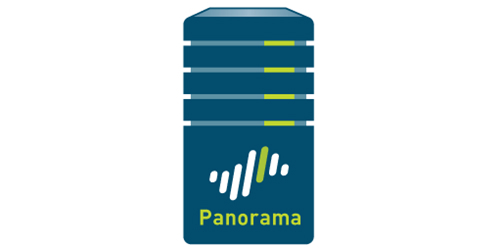
Overview
The Panorama plugin provides for the blocking/unblocking of Domains, URLs, and IP addresses, decommissioning servers, and performing bulk actions.
Functionality
The Panorama plugin provides several nodes for blocking/unblocking Domains, URLs, and IP addresses, committing/reverting changes, decommissioning servers, and performing bulk actions.
Instance Configuration Parameters
Name for the Panorama instance.
Unique name for the Panorama instance.
IP or hostname where Panorama is running.
Valid user name for the Panorama server.
Valid password for the user name on the Palo Alto Firewall server.
Whether or not to listen to broadcast domain block events.
Whether or not to listen to broadcast domain unblock events.
The name used for the URL Filter to add the blocked domain to.
Whether or not to listen to broadcast URL block events.
Whether or not to listen to broadcast URL unblock events.
The name used for the URL Filter to add the blocked URL to.
Whether or not to listen to broadcast IP block events.
Whether or not to listen to broadcast IP unblock events.
The name used for the Firewall rule to add the blocked IP to.
A list of device groups to push changes to. If this is blank, it will default to the Shared group.
Flow Nodes
The display name of the node within the flows
ID name for the specific Palo Alto Firewall Instance.
Block or Unblock IP, URL, or Domain.
The Name of the URL Filter to add blocked Domains to.
The Name of the URL Filter to add blocked URLs to.
The Name of the Firewall rule to add blocked IPs to.
A list of device groups to push changes to. If this is blank, it will default to the Shared group.
Determines the block/unblock requests to run based on a search of the contents within the Block Within or Unblock Within field. For example, if the supplied value is payload.ioc and the contents at that location are as follows,
{
“domain”: “baddomain.com”,
“url”: “https://baddomain.com/path/to/file”
}
a domain block/unblock and url block/unblock will be run.
Sends a request to block/unblock the domain configured by Domain. This adds a URL Filtering rule.
Sends a request to block/unblock the IP Address configured by IP Address. This adds a filrewall rule.
Sends a request to block/unblock the URL configured by URL. This adds a URL Filtering rule.
The display name of the node within the flows.
ID name for the specific Panorama Instance.
Panorama asset string to search for. Generally the ip/hostname of a decommissioned server.
The display name of the node within the flows.
ID name for the specific Panorama Instance.
Whether or not to commit actions performed by this node.
- type
- Type of object. Options include
- address
- CIDR block, IP Address, or IP Address Range.
- address-group
- Group of address objects
- block
- Firewall rule or URL Filtering object. Can be a list of address objects, address-group objects, address strings, URLs, or domains.
- action
- Action to take. Options include
- set
- Create or add to an object/policy. If the object can only contain one element, then the object will be overwritten.
- delete
- Delete from an existing object/policy. If the
valuesandtagscolumns are both empty, the entire object/policy will be deleted.
- name
- Name of the object/policy.
- values (Optional)
- Values to be updated. Can contain multiple values.
- device-groups (Optional)
- Device groups to apply changes to. Can contain multiple values. If this is not included, it will default to
Shared. - tags (Optional)
- Tags to update on the object. Can contain multiple values.
The display name of the node within the flows.
ID name for the specific Panorama Instance.
CSV array from csv node containing actions to perform.
Whether or not to commit actions performed by this node.
The display name of the node within the flows.
ID name for the specific Panorama Instance.
The display name of the node within the flows.
ID name for the specific Panorama Instance.
Learn More
JSON Message Format
The following samples show the JSON content added to the message payload, which conform to Node Messaging Format. The content exists within the pano1 object.
Block Site Success
The italicized, green text is inserted into the message payload upon a successful request. The following example uses “pano1” for the uniqueId of the Panorama Instance:
"payload": {
"panorama": {
"pano1": {
"response": {
"commit": {
"Panorama": {
"Group 1": {
"status": "success"
},
"Group 2": {
"status": "success"
},
"Group 3": {
"status": "success"
},
"Panorama": {
"status": "success"
},
"Group 1-2": {
"status": "success"
},
"Group 1-3": {
"status": "success"
},
"Group 1-4": {
"status": "success"
},
"Group 2-2": {
"status": "success"
},
"Group 2-3": {
"status": "success"
},
"Group 2-4": {
"status": "success"
},
"Group 3-2": {
"status": "success"
}
}
},
"actions": [
{
"name": "IP 1",
"tags": "SQL",
"type": "address",
"action": "set",
"values": "192.168.1.2",
"response": [
{
"shared": "success"
}
]
},
{
"name": "IP 2",
"tags": "SQL",
"type": "address",
"action": "set",
"values": "192.168.1.0/24",
"response": [
{
"Group 1-2": "success"
}
],
"device-groups": "Group 1-2"
},
{
"name": "IP 3",
"tags": "TEST2",
"type": "address",
"action": "set",
"values": "192.168.1.1-192.168.3.10",
"response": [
{
"shared": "success"
}
]
},
{
"name": "IP 4",
"tags": "TEST2",
"type": "address",
"action": "set",
"values": "192.168.1.4",
"response": [
{
"shared": "success"
}
]
},
{
"name": "Group 1",
"tags": "TEST2",
"type": "address-group",
"action": "set",
"values": "IP 1;IP 2;IP 3;IP 4",
"response": [
{
"Group 1-2": "success"
}
],
"device-groups": "Group 1-2"
},
{
"name": "Secflow Filter",
"tags": "NEW TAG2",
"type": "block",
"action": "set",
"values": "https://www.gogle.com/badURL;20.30.40.50;027.ru",
"response": [
{
"Group 1-2": {
"tags": "success",
"027.ru": "command succeeded",
"20.30.40.50": "command succeeded",
"https://www.gogle.com/badURL": "command succeeded"
}
},
{
"Group 1": {
"tags": "success",
"027.ru": "command succeeded",
"20.30.40.50": "command succeeded",
"https://www.gogle.com/badURL": "command succeeded"
}
},
{
"Group 1-3": {
"tags": "success",
"027.ru": "command succeeded",
"20.30.40.50": "command succeeded",
"https://www.gogle.com/badURL": "command succeeded"
}
}
],
"device-groups": "Group 1-2;Group 1;Group 1-3"
}
]
}
}
}
}
}
Metro Office Park
2950 Metro Drive, Suite 104
Bloomington, MN 55425
Phone: +1 952-500-8921
©Nevelex Labs, LLC. 2018-2026, All Rights Reserved.
EULA